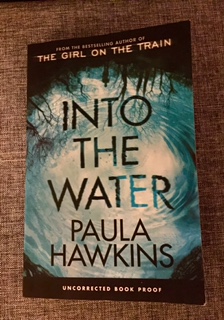Confession time: I haven’t read any poetry since completing my A Levels, 15 years’ ago. In all honesty, it’s not a genre I ever consider reading and I don’t really know why. Polly Clark’s, debut novel, Larchfield, may be about to change all that.
Cleverly weaving the lives of modern-day poet, Dora, with W.H Auden, one of the 20th century’s most established poets, Clark has created gorgeous prose wrapped in a halo of poetic rhythm. Dora’s life is about to change beyond recognition following a move to remote Scottish town, Helensburgh. Newly married and pregnant with her first child, change is inevitable, but what Dora hopes will be a move to inspire, turns out to be a life from which she craves escapism. And escape she does.
We first meet Auden as semi-established poet. The year is 1930 and much like Dora, he makes the move to Helensburgh in the hope it will spur on his creativity. Larchfield, the independent boys’ school Auden finds himself ‘teaching’ at, is everything you’d hope a boys’ school would not be. Littered with bullies (staff and pupils alike), lacking funds, enthusiasm and any sense of welfare, it’s no place for the likes of Auden and anyone who dares sway from the text-book masculine image young boys are expected to emulate. A joke to both colleagues and pupils, Auden is no walkover, and leaves more an impression on these young boys than he dares to realise. His kindness towards Jamie, a lonely, sickly boy, is so selflessly genuine that Auden’s character traits, so publically mocked, are what serve him so well in this case.
Leading two completely different lives, Dora and Auden, share such fragile symmetry that collides perfectly through Clark’s imagining of their stories, past and present. And their first ‘encounter’ is the stuff of childhood fantasy. Who could resist a message in a bottle?

As Dora battles to find her place in this new world, her hellish Christian neighbours’, Mo and Terrence, torment and plague her every move; much of which goes unnoticed, adding more fuel to the fire between Dora and husband, Kit. As a mum, my heart ached for Dora’s desperate and often cruel situation. So-called ‘support’ pumped full of hatred and pre-conceived notions about Dora’s choices as a mum, made me wince, especially knowing Clark drew on personal experience as a catalyst for this book – I sincerely hope both Clark and Dora put to bed any such criticism. My heart goes out to any mum facing any such ridicule.
Decades apart, Auden, is battling his own life choices. As a homosexual in the 1930’s, he is far from socially acceptable, despite his knack for conversation and thoroughly fascinating take on life. Trying desperately to seek his own escapism, he finds a friend in Larchfield’s, Daphne, the headmaster’s dying wife. A lady in need of uplifting, she takes an instant shine to Auden’s rather eccentric approach. Their regular meetings make for some beautiful and rather amusing scenes.
Clark has pulled off a debut novel that has not only struck a chord with me, but has fired up a desire to delve into the often-misunderstood world of poetry. In some ways, poems are the ultimate short story, crammed full of emotion, passion, shock, heartache. Perhaps poetry could provide that daily dose of escapism or realism, we all sometimes need?
This copy of Larchfield was provided for review purposes by Elizabeth Masters, at Quercus Books.

